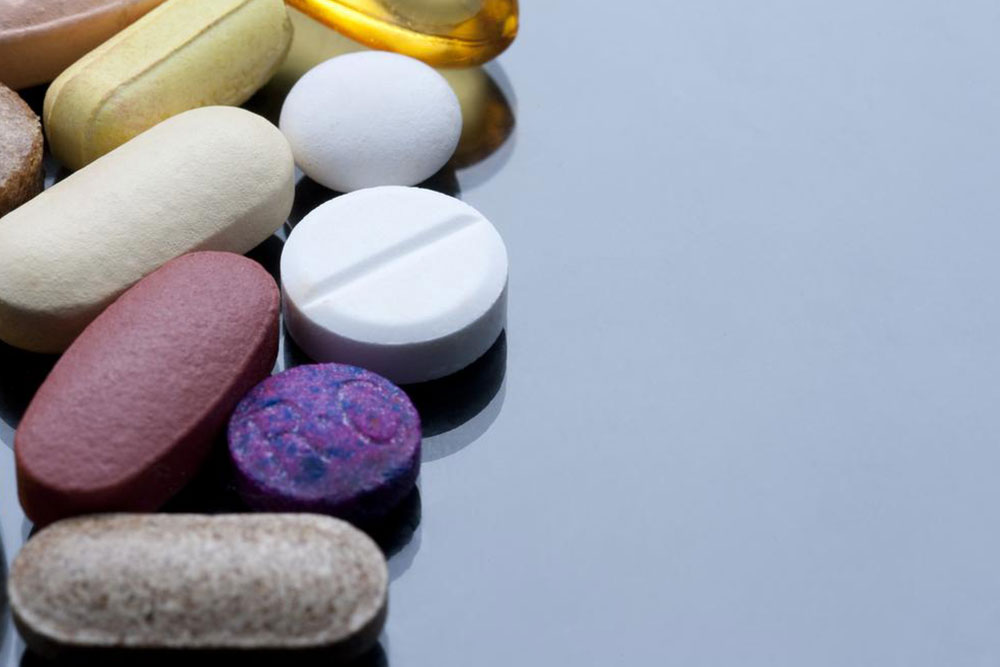Essential Supplements for Heart Wellness and Heart Health Support
This article highlights the top 10 supplements that support heart health and reduce cardiovascular risks. Key nutrients like omega-3s, CoQ10, magnesium, and folic acid are discussed, emphasizing their benefits and natural sources. Always consult healthcare providers before starting new supplements to ensure safety and efficacy. Incorporating these into a balanced lifestyle can enhance your cardiovascular wellbeing and promote lasting heart health.
Sponsored

Taking care of your heart is vital for overall health, and adopting a heart-friendly lifestyle is key to maintaining optimal cardiac function. Along with balanced nutrition and physical activity, specific supplements can aid in strengthening your cardiovascular system. It’s important to select trusted products under medical supervision. Here, we highlight the top 10 supplements renowned for supporting heart health and reducing cardiovascular risks.
1. Omega-3 Fatty Acids
Omega-3s, found in fish oil, are well-studied for their heart benefits. They help lower triglycerides, decrease inflammation, and prevent arterial clot formation. These fats also aid in regulating blood pressure and enhancing heart function.
Sources: Fatty fish like salmon, mackerel, sardines; fish oil capsules.
2. Coenzyme Q10 (CoQ10)
CoQ10, an antioxidant produced naturally in the body, supports mitochondrial energy production, reduces oxidative stress, and promotes heart health. It can help lower blood pressure and assist those with heart failure symptoms.
Sources: Meat, poultry, organ meats, CoQ10 supplements.
3. Magnesium
This vital mineral plays a role in maintaining normal heartbeat, regulating blood pressure, and preserving arterial health. Adequate magnesium intake lowers cardiovascular disease risk.
Sources: Leafy greens, nuts, seeds, whole grains, magnesium supplements.
4. L-Arginine
An amino acid that boosts nitric oxide production, L-Arginine relaxes blood vessels, improves blood flow, reduces blood pressure, and supports vascular health.
Sources: Meat, dairy, legumes, L-Arginine supplements.
5. Dietary Fiber
Fiber helps lower bad cholesterol (LDL), stabilize blood sugar, and manage weight, contributing to decreased heart disease risk. Soluble fiber is especially effective in cholesterol reduction.
Sources: Oats, fruits, vegetables, legumes, fiber supplements like psyllium husk.
6. Vitamin D
Optimal vitamin D levels are linked to lower heart disease risk. This vitamin supports calcium balance and cardiovascular function. Sun exposure and vitamin D-rich foods aid in maintaining proper levels.
Sources: Fortified dairy, fatty fish, eggs, supplements.
7. Green Tea Extract
Rich in antioxidants, particularly catechins, green tea extract can lower LDL cholesterol, reduce blood pressure, and improve endothelial function, all beneficial for heart health.
Sources: Green tea, supplement form.
8. Potassium
This mineral aids in electrolyte balance, regulating heartbeat and blood pressure. Adequate potassium intake reduces hypertension and stroke risk.
Sources: Bananas, leafy greens, tomatoes, potassium supplements.
9. Garlic
Known for its medicinal properties, garlic contains allicin, which can help reduce cholesterol, lower blood pressure, and promote heart health.
Sources: Raw garlic, garlic supplements.
10. Folic Acid (Vitamin B9)
Folic acid helps control homocysteine levels, a factor linked to increased cardiovascular risk. Ensuring sufficient folic acid intake supports vascular health.
Sources: Leafy greens, citrus fruits, beans, folic acid supplements.
Integrating these supplements into your routine can promote cardiovascular resilience, but always consult a healthcare professional before beginning any new regimen. Remember, supplements complement but do not replace a healthy diet, regular activity, and medical advice. Prioritize overall lifestyle changes for lifelong heart health.






